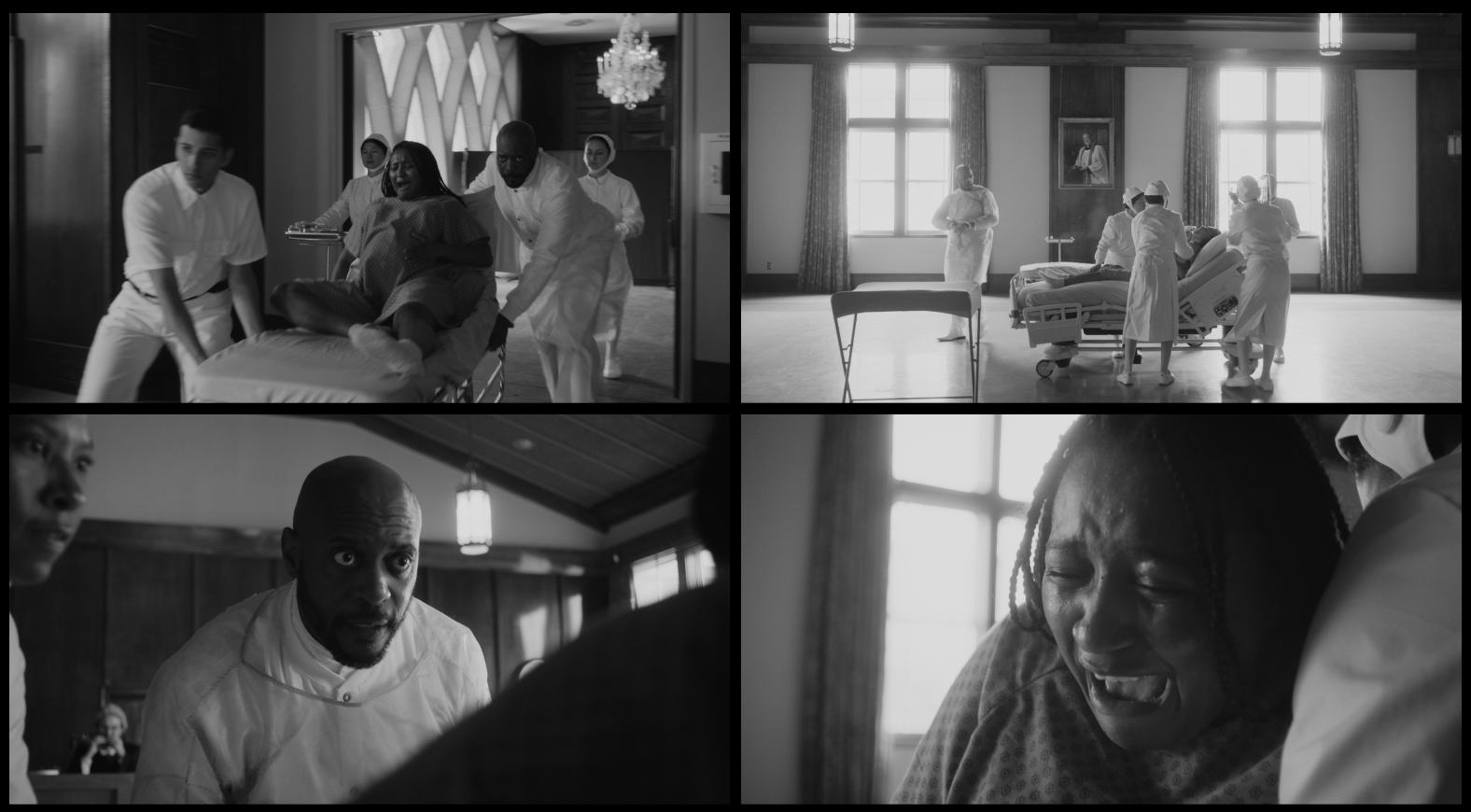Ask An Expert: Reel Talk with Dr. Julia [LABOR + JUSTICE]

Ask an Expert: Reel Talk with Dr. Julia
Maternity care in a post-Dobbs environment
Dr. Julia Arnold VanRooyen
Sarah Joy Byington’s film “Labor + Justice” takes place in a dystopian future where women who “fail” to deliver a living baby are immediately sentenced to death by a grotesque panel of judges. These men (and one woman) know nothing of medicine and care even less for the humans involved. The film evokes disgust, followed by devastation for the woman whose child is stillborn. The doctor in the film is outraged because he was not allowed to care for the patient in a manner that might have saved the baby.
While we don’t sentence women to death for having a stillbirth, laws restricting or banning abortion have been enacted in many states in the year and a half since the Supreme Court overturned Roe. Twenty states have now banned abortion or limited it to the first six weeks (which has essentially the same effect as a ban, as many people don’t know they are pregnant by six weeks). Though all states with bans include language about exceptions to save the life of the mother, there is a lack of clarity about what this means in practice. What conditions qualify? How sick does a patient have to be? It seems the fetus takes precedence unless the pregnant patient is truly about to die. It is impossible to predict every possible condition or scenario that might result in the death of a pregnant person, and the language in these laws is intentionally vague.
This leaves physicians practicing in these states in an impossible position. They must determine if a lifesaving abortion is justified in the eyes of the law. If they are determined to have violated the law, they risk losing their medical license, criminal prosecution, large fines, and even imprisonment. This dilemma is agonizing for physicians and causes harmful delay in treatment for patients. Some states include broader provisions for the “health” of the mother, but only if she has a condition that “poses a serious risk of substantial impairment of a major body function,” again forcing physicians to determine what this means.
As a result, some OB-GYNs are leaving states that restrict or ban abortion. Fewer medical students are choosing to do OB-GYN residencies in these states. Losing experienced obstetricians and the opportunity to train new ones will result in fewer doctors to care for pregnant patients. There will be more “obstetric deserts” where these services are difficult to access, particularly in rural areas. Early studies show higher rates of maternal mortality and infant death in states that have enacted bans, especially among women of color. This is over and above the preexisting, totally unacceptable racist disparities in maternal morbidity and mortality. These are just a few of the ways that abortion bans and restrictions are already having a negative impact on women and disproportionately on women of color and women of lower socioeconomic status.
While the scenario in “Labor + Justice” is fictional, the on-screen obstetrician’s outrage is all too familiar to OB-GYNs practicing in many states in the U.S.
Our resident expert Dr. Julia Arnold VanRooyen is here to answer all of your rePRO questions!
Simply fill out the form below - you may remain anonymous if you choose - and she'll answer them in our bi-monthly Periodical emails and social media channels. Leave your question below!



